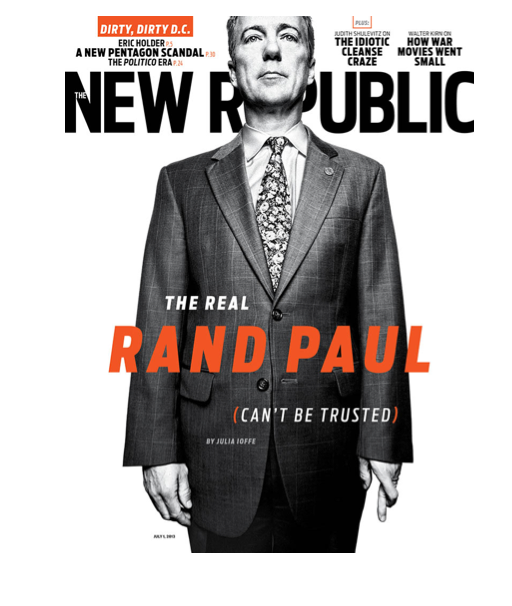Nick Gillespie uses the current film Divergent as a springboard to discuss why Rand Paul’s “politically divergent” message is so unwelcome to the mainstream media who cheer for team red or team blue:
It turns out that Divergent isn’t just the top movie in America. It’s also playing out in the run-up to the 2016 presidential race, with Sen. Rand Paul, the Kentucky Republican, in the starring role.
Based on the first volume of a wildly popular young-adult trilogy, Divergent is set in America of the near-future, when all people are irrevocably slotted into one of five “factions” based on temperament and personality type. Those who refuse to go along with the program are marked as divergent — and marked for death! “What Makes You Different, Makes You Dangerous,” reads one of the story’s taglines.
Which pretty much sums up Rand Paul, whose libertarian-leaning politics are gaining adherents among the plurality of Americans fed up with bible-thumping, war-happy, budget-busting Republicans and promise-breaking, drone-dispatching, budget-busting Democrats. Professional cheerleaders for Team Red and Team Blue — also known as journalists — aren’t calling for Paul’s literal dispatching, but they are rushing to explain exactly why the opthalmologist has no future in politics.
A national politician who brings a Berkeley crowd to its feet by attacking NSA surveillance programs and wants to balance the budget yesterday? Who supports the Second Amendment and the Fourth Amendment (not to mention the First and the Tenth)? A Christian Republican who says that the GOP “in order to get bigger, will have to agree to disagree on social issues” and has signaled his willngness to get the federal government out of prohibiting gay marriage and marijuana?
Well, we can’t have that, can we? Forget that Paul is showing strongly in polls about the GOP presidential nomination in 2016. “He is not doing enough to build the political network necessary to mount a viable presidential campaign,” tut-tuts The New York Times, which seems to be breathing one long sigh of relief in its recent profile of Paul. “Rand Paul’s Plan to Save Ukraine is Completely Nuts,” avers amateur psychologist Jonathan Chait at New York.





